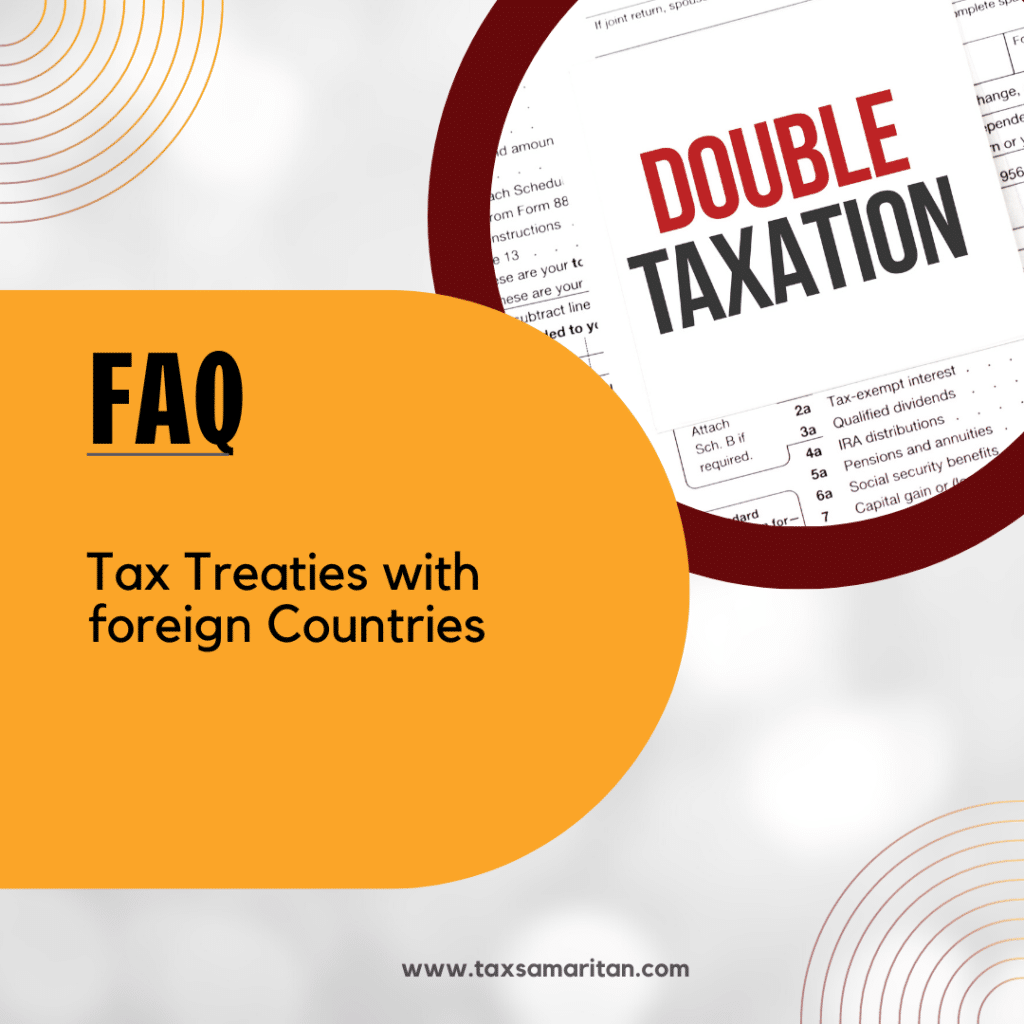Tax Treaties with foreign countries

The United States has income tax treaties with a number of foreign countries. Under these treaties, residents (not necessarily citizens) of foreign countries are taxed at a reduced rate, or are exempt from U.S. income taxes on certain items of income they receive from sources within the United States. These reduced rates and exemptions vary among countries and specific items of income. Most income tax treaties contain what is known as a “saving clause,” which prevents a citizen or a resident of the United States from using the provisions of a tax treaty in order to avoid taxation of U.S. source income.
Treaties should be carefully examined to find if you are entitled to a:
· Tax credit
· Tax exemption
· Reduced rate of tax
· Other treaty benefit or safeguard
The United States has tax treaties with the following countries:
Armenia, Australia, Austria, Azerbaijan, Bangladesh, Barbados, Belarus, Belgium, Bulgaria, Canada, China, Cyprus, Czech Republic, Denmark, Egypt, Estonia, Finland, France, Georgia, Germany, Greece, Hungary, Iceland, India, Indonesia, Ireland, Israel, Italy, Jamaica, Japan, Kazakhstan, Korea, Kyrgyzstan, Latvia, Lithuania, Luxembourg, Malta, Mexico, Moldova, Morocco, Netherlands, New Zealand, Norway, Pakistan, Philippines, Poland, Portugal, Romania, Russia, Slovak Republic, Slovenia, South Africa, Spain, Sri Lanka, Sweden, Switzerland, Tajikistan, Thailand, Trinidad, Tunisia, Turkey, Turkmenistan, Ukraine, Union of Soviet Socialist Republics (USSR), United Kingdom, United States Model, Uzbekistan and Venezuela

All About Randall Brody
Randall is the Founder of Tax Samaritan, a boutique firm specializing in the preparation of taxes and the resolution of tax problems for Americans living abroad, as well as the other unique tax issues that apply to taxpayers. Here, they help taxpayers save money on their tax returns.